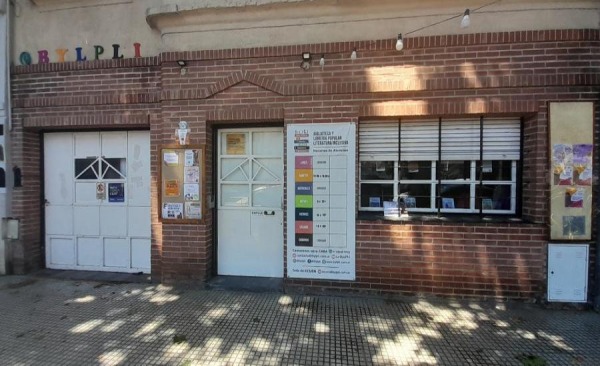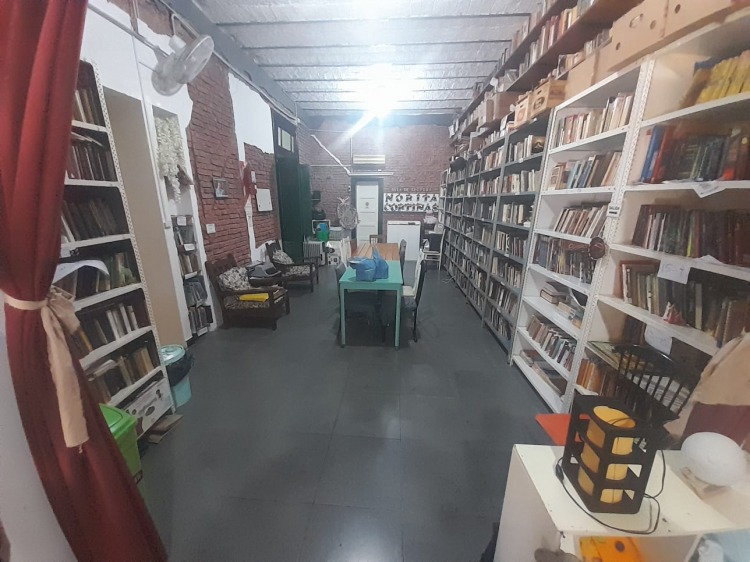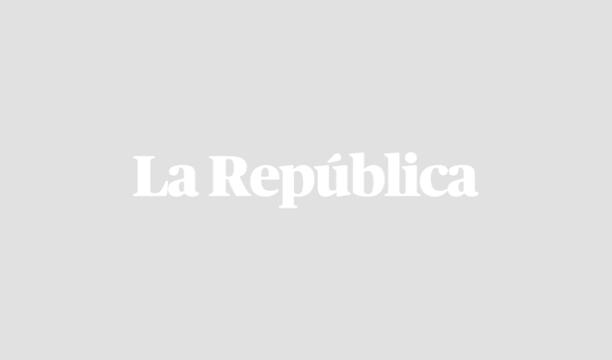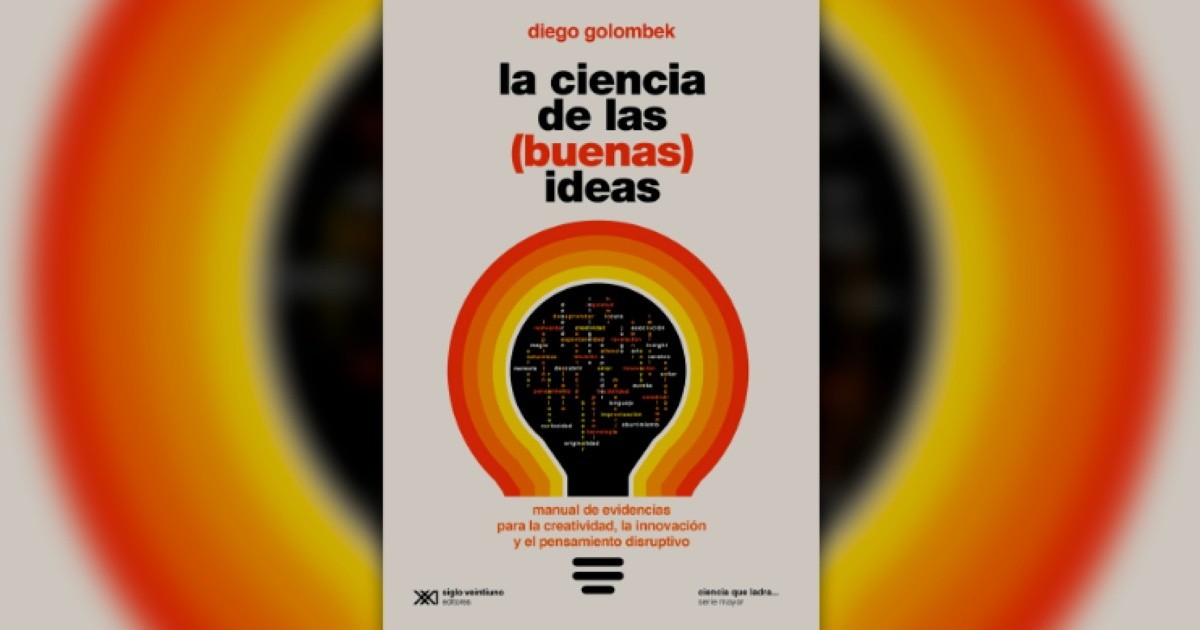we visited Library and People's Library of Comprehensive Literature (BYLPLI)which is located at Camarones 2876, in the district Villa Santa Rita. We're talking to your coordinator federico bagini, Who told us about this social space project and all the activities they are doing.
There was a plant area in this house, wasn't there?
Something worked here that was very close to this project, but this is completely different, but this has a base there, actually there are people who were in FRACCTAL and now we are in BYLPLI.
We founded FRACCTAL in January 2015, and it ran until mid-2016. I was general coordinator for the first year, then I was a member for another 6 months and then left, shortly after the project disbanded. Fractal was a botanical, cultural and artistic space that had a social imprint and an approach to social problems. BYLPLI is something purely social, something cultural or artistic, but not organized by us.
When did BYLPLI start?
In 2018 I started thinking about this project. The house is owned by a friend, an elderly person, who has been renting it to me since 2015. It later became a community house, between 2016 and 2021, to which I return as a coordinator.
We opened at the beginning of 2020, and then the pandemic hit. That year was complicated, but in September and October it started to ease a little, and that's when we started to resume activities. In April 2021, we started restoring furniture that we collected from the street or that was donated to us, so in those months of work we formed and consolidated the collection. At the end of July, we entered the house and repaired the place. We opened this headquarters on October 15, 2021, and from there we rolled things out.
You are a library and bookstore
We are a civil society association and popular library. Since we recently turned two years old, we are processing recognition from CONABIP (National Committee of Popular Libraries).
Once we start to be recognized by CONABIP and also by the General Directorate for the Promotion of Books, Libraries and City Culture, we will start receiving subsidies. With the city, it will allow us to pay librarians, and it will allow us to move in a different way and support ourselves.
BYLPLI is distinguished by its founding goals: one of the founding goals is to have people coming out of incarceration and someone from the transgender population work in the library. These are the two demographic groups that interest us and we recognize that they have the most difficulties in obtaining formal employment.
Another goal of the library is to stand against private property, not from an anarchist place that wants to make us all live on the same land, because we realize that this takes a long time to do, to implement as a way of life and a form. Social Practice for Community Practice Yes we understand that if we have the privilege of having a space where we pay a rent that is not high, we will have the approval of the landlord who is a friend and who knows what is happening here, and why. Do not interact with the space. The space is not the library. The space is inhabited by the library.
We have offered to the various organizations which do not have a fixed headquarters, and which meet in houses and pubs, to have this as their fixed headquarters. For example Feminacida, it's not that it's in BYLPLI, but the headquarters of Feminacida is Camarones 2876, at such-and-such time on such-and-such day. So we realize that the idea of being able to inhabit a place and have responsibility and responsibility for care and maintenance is multi-corporeal. Ownership is social, not individual or implemented or maintained through hierarchy.
Like Feminacida, the Indigenous Women's Movement and Diversity for Good Living are also here, the non-binary Trava Trans association is here, Tierra Roja, ANRed and Desplegare, a center for people with disabilities right around the corner, are also here. Since they often do not have space, they come here to meet.
Another goal is that the headquarters is not our territory, but one of the many territories we inhabit. For example, we organize literacy workshops in Isauro Arancibia, the educational center for the homeless, we organize literacy and writing workshops in prisons in the province of Buenos Aires, and we organize workshops for children in cooperation with other organizations in the province. We coordinate with other libraries located in very specific contexts such as cities or settlements, we hold “Made in Buenos Aires” workshops for people living on the streets, we work with a special education school on job training, we offer workshops on Confleur Day The center is populated by adults and seniors. The elderly are disabled, so we have a lot of work outside the library grounds. We go to other areas which could be a prison or a place of confinement, it could be a private day centre, a public special education school, a village etc., and we take over tasks.
This is another foundational principle, the idea that the Earth is all the space that we can inhabit through our practices.
They specialize in gender and diversity
As a library with a general collection, we give great importance to what we want to have, and on the other hand to what users want, we seek to have something that people are looking for because the audience that we will be able to offer is very specific only what you agree with ideologically, although the narratives that Don't agree with her, don't stay. Furthermore, we realize that we must have a diverse selection in order to be able to meet the demand we wish to achieve.
The library is in a way a facade for us, because it is the legitimacy that allows us to do other things. Our social footprint. We are dedicated to social work, to welcome people who belong to communities that have been subjected to violations.
Everything we have here is oriented towards human rights, from different places and proposals, but always human rights as a foundational focus.
How can a person relate to the library?
You have to complete a form based on the Gender Identity Act, it responds to the practices we want, like asking the pronoun, asking the person to enter the name they want, not the one that appears on the DNI. You must pay a monthly fee, which allows you to review up to three books per week. There are people who use it to study.
In the library we have a part of the projects with a project called Pollera Agendas that produces agendas with a very similar perspective to ours, with the anniversary of social struggles in Latin America; There are also products from Desplegare, a company for people with disabilities, that are functional training; Then there are Puerto Piojo Arte products which are decorative objects made from salvaged objects.
What other activities do you have?
We have activities that can be understood as cultural such as book shows, toy libraries, community gardens, oral storytelling performances, and an exhibition of self-managed entrepreneurs, which we do indoors and on the sidewalk.
In collaboration with two other organizations – the Association of Non-Teaching Employees, which are health workers as therapeutic companions and with Precarious Service Providers, a group of workers who demand fundamental improvements at work – we held the Inclusionarte Festival within the framework of the Day of the Rights of Persons with Disabilities.
All these other cultural activities have a social imprint, in each of them there is an approach to certain problems. For example, the Toy Library concerns the right to childhood, what play is like, what play is, and what patterns are reproduced in play. The book is written by a transgender person and tells a story related to his personal experiences and sexual and emotional connections. At the Self-Managed Entrepreneur Fair, we do not charge any fairground fees, which for us is a way to promote collaboration and entrepreneurship as a practice.
In Fogón Cuentero, which is oral narration, there is a very clear departure from the name of the activity, as the idea of the story, the oral narration, the meeting in a circle, and the fire, are issues that are dealt with a little removed from a more concrete practice.
On our wedding anniversary, we had a bigger festival in Pozo di Banfield, because human rights, or what the dictatorship meant, genocide, is one of the central axes that we are fighting for. Our room is called Norita Cortiñas (one of the founders of Madres de Plaza de Mayo Línea Fundadora), and it leaves a mark on you. Or in the courtyard we have a sign “30,400 Missing,” 400 for transgender people who never entered the accounting office.
We have published two books, one of which is a book resulting from the Norita Cortinas Literary Competition, and the other is a systematization of what was produced in the literacy workshops in Isoro.
Tell me about the festival in Pozo di Banfield
We celebrated our second anniversary on September 30 in the former secret center that is now a place of memory and promotion of human rights in Pozo di Banfield, and held six workshops related to addressing different social problems. It was a very exciting event because for the first time we were able to take a guided tour of the area under trial outside of the activity organized by El Pozo. It was a very symbolic thing for us.
How many people are you ?
We, as a board, are 15 people, but out of those 15, 5 do a lot, 5 do an average job, and 5 depend on others. Then there is a group of collaborators, who will be volunteers next year because we will be doing a division to avoid friction. There will be three statuses: Volunteer, Collaboration, and Active Members.
In addition, there are people who perform specific tasks such as workshop leaders. We are a group.
Also part of BYLPLI are the groups that come, because we show that we are many but at the same time we are creating the framework and network that we understand is necessary.
What projects do you have for the future?
We have many projects, and last year we opened a second headquarters in San Telmo that focuses on children. We want to open the third headquarters within the framework of Pozo di Banfield, within the Secret Center, which is a library specializing in human rights in its broad scope, dealing with human rights through articles and historical analysis.
The other goal is to open a fourth headquarters. We have achieved a system that allows us to be self-sufficient. For a year they have been painting graffiti on the front of the house, something that has never happened before.
communication
Instagram: @bylpli






